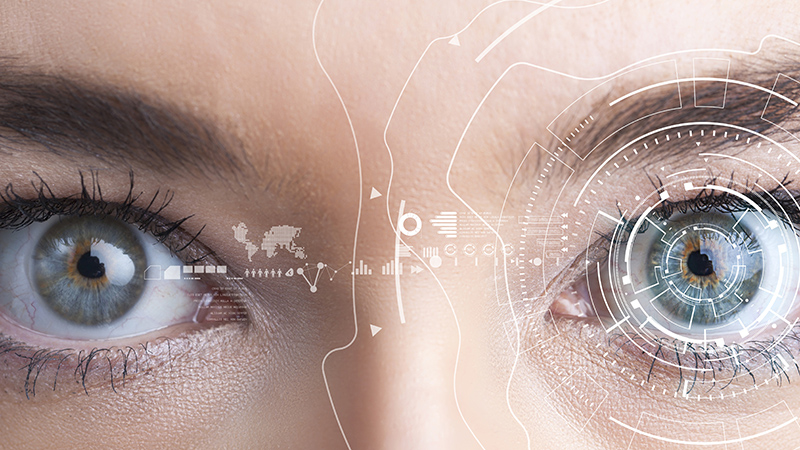

Angle

New Facial Recognition Technology Further Blurs the Line Between Privacy and Innovation
- Cyber Breach
- 6 Mins
What is Facial Recognition Technology Used For?
Since facial recognition technology’s rise in accessibility, law enforcement agencies have been using it for years to match criminal suspects with mug shots, driver’s licenses, and other official identification documents found in their databases. Private organizations have also used it for a wide array of identification purposes pertaining to their employees, clients, and consumers. Although using this technology can provide several benefits, there are still overwhelming privacy concerns that both public agencies and private organizations should consider before deploying software that implements this technology.
The Newest Frontier in Facial Recognition Technology
In 2017, a new facial recognition app called Clearview AI entered the market. The app scrapes data from several publically available websites, like social media and employer webpages. Then, the app compares faces that users input into the system to the Clearview AI database and provides matches, with links, to where the content originated. The app operates from advanced technology that can identify people with better accuracy than previous facial recognition software could. The photos do not need to contain a profile image or be of super clear quality to locate a match. For example, the app has identified a person who was in the background of someone’s mirror photo.
How Effective is Face Recognition Technology?
The app also uses advanced facial geometry to create a mathematically supported map of a person’s facial features in order to yield results that are more effective. Still, there is always room for error and the app’s creator Hoan Ton claims it has about a 75 percent effectiveness rate. The app is currently available to law enforcement agencies to assist with criminal identification, but some private organizations have licenses to use it for security matters. Several law enforcement agencies have provided positive feedback about the app’s quick turnaround and effectiveness.
However, many people have expressed qualms about this app. First, it acquires a plethora of random data and is not regulated, nor has the app been subjected to independent testing for accuracy or compliance. Additionally, any photos that users upload for facial comparisons get stored on Clearview AI’s servers and the company can monitor the app’s activity. The company also has tested augmented reality glasses that could provide instantaneous identification on a person while listing personal information about the person identified. Clearview’s owner has claimed they will not release this feature.
Is Facial Recognition Technology an Invasion of Privacy?
All of these issues raise a wide range of privacy concerns because the app can retrieve and retain personal data without consent and regulation. While the company claims it only scrapes public data and does not take photos from private accounts many are skeptical and worried that Clearview AI will eventually become publicly available and could open the floodgates for more advanced facial recognition software to storm the country.
Furthermore, the rise of facial recognition software creates questions and grey area for legal proceedings. At its core, this software is a type of data reservoir and all of those data points, images, and predictive models may soon be subjected to discovery in certain legal proceedings. There remains disagreement about the value of worrying about collecting this data. However, collecting Fitbit data was a fad several years ago and now that data is routinely collected. Since this technology is still burgeoning, there is opportunity be proactive about monitoring its usage and looking for defensible personal data collection methods.
Solving Crimes Using Face Recognition Software: Benefits vs. Risks
Obviously, the biggest benefit of apps like Clearview AI is for law enforcement. Using the app in order to identify criminal suspects more quickly and without compromising an investigation can speed up criminal investigations and in turn, help victims access justice with fewer delays. The same is true for companies that utilize it for private security purposes.
However, do the risks of outweigh the benefits? The answer is complicated because it is hard to draw a line between innovation and privacy. There are so many legal implications that facial recognition software can implicate. If apps like Clearview AI become available to the public, someone could just snap a photo at any moment and find out a person’s identity and private information. The technology lends itself towards constant digital and social surveillance. Another potential issue is the process of how these algorithms gather information. Without regulation, there is a greater chance for data retrieval from private accounts since there are no firm consequences. False facial matches can also be harmful. A law enforcement officer could arrest the wrong person or a company using it for recruitment purposes could pass over qualified candidates.
Conclusion
Lastly, the fact that a company can store all of this data and user inquiries in one place raises concerns about hacking and the potential for the information to become weaponized. The EU is already considering a temporarily ban on any technology that has facial recognition features because of the software’s harmful potential, and San Francisco has become the first U.S. city to outright ban the technology. This ban prohibits individuals from utilizing facial recognition technology in public spaces, which would give the EU time to analyze any negative effects and create a risk management plan. If these apps keep evolving and the U.S. does not enact a federal privacy law, these concerns may not receive their much-needed attention in the States on a national level. Until then, individuals concerned about privacy should take measures to safeguard their data and be careful not to appear in mirror selfies.
If your organization is interested in user friendly cloud-based end-to-end data discovery: Epiq Discovery
If you found this blog informative, you may enjoy The Tech Factor: Special eDiscovery Considerations for the Tech Sector or the Epiq Angle Blog.
The contents of this article are intended to convey general information only and not to provide legal advice or opinions.
